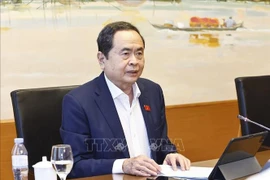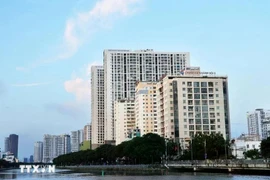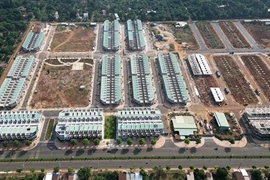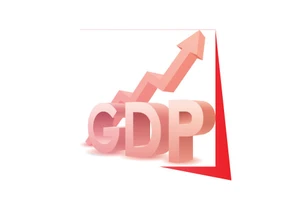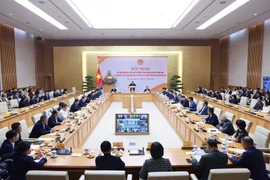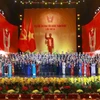Hanoi (VNS/VNA) - Despite being touted as a crucial solution to address the housing needs of low-income earners, social housing remains out of reach for a segment of the working population due to the rigid income verification process.
An individual who seeks to purchase an apartment in a social housing project must not own another apartment in the area where the project is situated, and their total family income must not exceed 30 million VND (1,156 USD) per month.
While it is usually simple to prove non-ownership of an apartment in the project's locality, income verification is complex, especially for informal workers.
Nguyen Huyen Trang, a freelance worker in Hanoi, earns less than 15 million VND monthly and currently rents an apartment. Because she plans to start a family soon, she looked into buying a social housing apartment (SHA).
However, she hit a wall when asked to submit verified income documentation.
"I went to the ward office multiple times with my papers, but they refused to certify my income because there was no official basis to verify my freelance work," Trang said. "I was stuck and had no idea how to complete the application."
Trang’s story is not unique. Others, such as To Dinh Oa, a 70-year-old Hanoi resident, are also struggling. Oa has been trying to help his son, a gig worker, secure an SHA in the capital.
While his daughter-in-law, a public school teacher, easily qualified due to her formal employment and contributions to social insurance, his son was rejected because of unverifiable freelance earnings.
"Our application was returned several times," Oa said. "I feel helpless. We still haven’t found a solution."
Even salaried employees face complications. In cases where workers switch jobs and experience a short break in their insurance or payroll documentation, even for just one or two months, their applications are often deemed unverifiable.
Gig workers, street vendors, app-based drivers and small traders who lack stable contracts, payroll slips or tax records are routinely caught in a bureaucratic grey area. Ironically, these are often the very people the programme aims to support.
Local authorities also find themselves in a bind. Without clear frameworks or legal tools to assess informal income, ward-level officials face pressure from frustrated citizens and upper levels of government to process applications quickly and accurately.
Vu Thi Thu Hoai, deputy chairwoman of Thuong Thanh ward in Hanoi’s Long Bien district, acknowledged the limitations.
"We’ve had cases where applicants worked as security guards without contracts. There’s no way to verify their income. It’s a major obstacle," she said.
At the national level, the Ministry of Construction reported that as of 2021, Vietnam had 655 social housing projects, comprising nearly 600,000 apartments. Of these, only 103 projects – around 67,000 apartments – have been completed. Another 137 projects are under construction, while 415 await implementation.
Yet the demand far outstrips the supply. With urban housing prices surging and private rentals becoming increasingly unaffordable, social housing projects are often oversubscribed, triggering intense competition and lengthy approval processes.
The experience of Hanoi resident Luong Quang Ngoc illustrates the ordeal. Ngoc applied to rent an SHA in 2023. Knowing that the odds of directly buying were slim due to oversubscription, he opted for a lease arrangement, with hopes of eventual ownership after five years.
"It was an exhausting process – from registering and compiling documents to passing the approval round," Ngoc said. "Even after securing the rental, I realised the hardest part still lies ahead."
Ngoc noted that any increase in personal assets during the lease period could jeopardise his eligibility to purchase later.
"People joke that to qualify for social housing, you have to stay 'sustainably poor,'" he said.
For developers, the programme is equally fraught. According to Deputy Head of Market Research and Promotion at the Vietnam Association of Real Estate
Broker Pham Thi Mien, social housing projects remain concentrated in peripheral districts, far from major job hubs. This geographical mismatch adds to the appeal of urban projects, intensifying the rush and competition.
"Standards for qualification are strict, the vetting process is cumbersome, and income verification is often a dead end," Mien said. "Meanwhile, illegal resale and transfer of SHAs continue to undermine access for genuine buyers."
Developers looking to enter the social housing market face their own maze of regulatory and financial barriers. Many cite long approval cycles, red tape and profit ceilings as major deterrents.
"Input costs like land, materials and interest rates are rising. When the sale price is capped and profits are low, most companies simply walk away," a developer said.
Moreover, finding a suitable land lot within urban centres is becoming nearly impossible due to limited availability and soaring prices, pushing projects further into undeveloped areas with poor infrastructure, which deters buyers.
Experts say the problems require systemic fixes. Deputy Director of the Vietnam Real Estate Research Institute Tran Xuan Luong advocates for a unified "one-stop shop" mechanism at the local level to handle all application-related procedures.
This, he argues, would both streamline the user experience and reduce the burden on officials.
He also called for a publicly disclosed land bank and a curated list of qualified construction suppliers to simplify planning and execution. Additionally, partnerships with banks offering subsidised loans should be formed early in the process.
"We need a full-cycle support chain – from land access, capital and materials to streamlined paperwork. If we don’t untangle these knots, the whole system remains stagnant," Luong said.
Unless these systemic barriers – particularly the issue of income verification for freelancers and gig workers – are addressed, the social housing strategy risks failing the very people it was designed to support./.
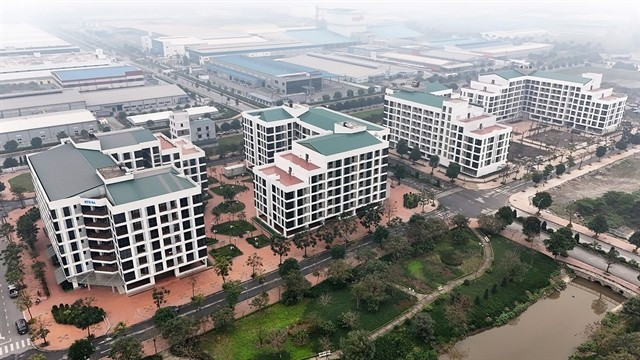
See more
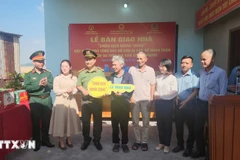
Military completes construction of 100 new homes for flood victims in Gia Lai
All houses were built to the “three-solid” technical standard, namely solid foundations, frames and roofs, ensuring durability and suitability for local living conditions.

Prime Minister urges VTV to enhance professionalism, worthy of core national media agency
PM Pham Minh Chinh affirmed that amidst complex and unpredictable global developments, Vietnam has continued to achieve comprehensive and notable socio-economic results, to which VTV has made an important contribution.
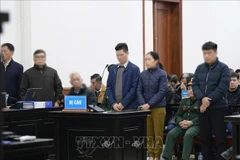
Military court imposes prison terms on defendants in Khanh Hoa land case
The case revolved around the handling of the 238-ha former Nha Trang Airport site, a prime coastal plot along Tran Phu street previously managed by the Air Force Officers’ College.

Congratulations to Vietnamese researcher in Australia
Associate Professor Nguyen Thanh Vinh of the University of New South Wales was honoured by The Australian as Australia’s most influential researcher in the field of organic chemistry.
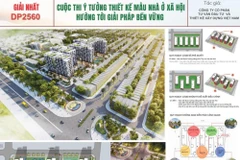
Highly applicable social housing design ideas honoured
According to the organising board, the award-winning entries will provide an important foundation for the Ministry of Construction to continue research and develop prototype and typical designs for broad use in localities.
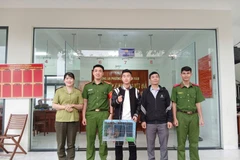
Gia Lai rangers receive rare forest night heron
The handover reflects the growing awareness and sense of responsibility among local residents in protecting wildlife, contributing to law compliance and biodiversity conservation efforts in the area.

Vietnam-funded school highlights enduring Vietnam–Cuba friendship
The Mártires de Tarará Primary School currently provides education for more than 100 pupils, ranging from kindergarten to grade six, serving Bauta district, which has a population of over 3,000.
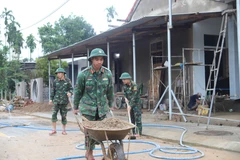
Swift campaign brings Tet homes to storm-hit residents in Hue
Quang Trung Campaign is not merely a task, but a political responsibility and a heartfelt commitment to the people. The guiding principle is to act as swiftly and decisively as possible, ensuring no family is left without shelter, especially in the days leading up to Tet, said Major General Nguyen Thanh Tuan, Director of the Hue Department of Public Security.
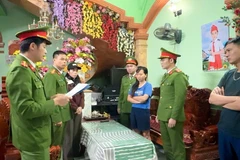
Tuyen Quang police successfully apprehend internationally wanted suspect
Police in the northern province of Tuyen Quang have successfully apprehended an internationally wanted criminal who was attempting to flee abroad, marking a significant achievement in the fight against transnational crime
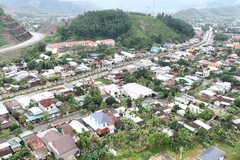
Hue city completes housing campaign five days ahead of schedule
The handover marked the final completion of the entire campaign, five days ahead of the deadline outlined in the Prime Minister’s official dispatch and in the run-up to the upcoming 14th National Party Congress.
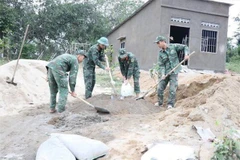
Military mobilises maximum forces to complete housing campaign on January 10
Home rebuilding must be completed on January 10, and no later than January 12, the dispatch said, saying under no circumstances, should progress be delayed.
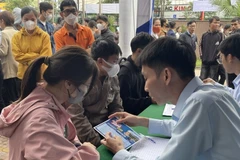
Youth joblessness remains stubborn despite labour gains
The unemployment rate of young people aged from 15 to 24 was 9.04%, higher than previous quarter and same period previous years.

Vietnam Coast Guard to ramp up IUU fishing combat during Tet
Patrol vessel KN-373, assigned to Fisheries Surveillance Flotilla No. 3 under Coast Guard Region 2 Command, will work closely with units from Vietnam Coast Guard Region 4 during the operations.
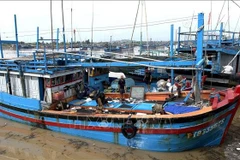
Dak Lak supports fishermen in occupational transition
As of December 5, 2025, Dak Lak had 2,556 fishing vessels, with an annual marine catch of around 68,000 tonnes. An estimated 2,900 workers are in need of occupational transition, as most have limited educational backgrounds, unstable incomes and are increasingly ageing.
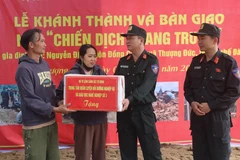
Public Security Ministry completes housing support campaign in central, Central Highlands regions
According to reports, the force built 419 new houses for families whose homes had collapsed, while repairing infrastructure in Ha Tinh, Hue, Da Nang, Quang Ngai, Gia Lai, Dak Lak, Khanh Hoa and Lam Dong.
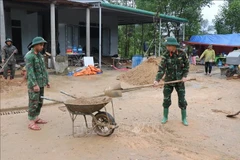
Hue races against time to build homes for families ahead of Tet
“This is not merely about building houses of bricks and cement,” a local official said, “but about restoring hope and confidence, in the spirit of leaving no one behind.”
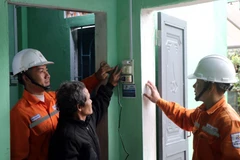
Quang Trung Campaign nears completion, helping rebuild lives in Quang Ngai
The near completion of the Quang Trung Campaign has brought reassurance and renewed optimism to storm- and flood-affected residents in Quang Ngai as the Lunar New Year approaches.

National Spring Fair 2026 scheduled for February in Hanoi
The fair will also contribute to promoting the campaign “Vietnamese people give priority to using Vietnamese goods” and introducing Viet Nam’s traditional Tet culture to international visitors.
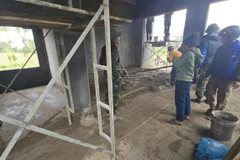
Quang Tri: Housing campaign brings hope for landslide-affected communities
The project was inaugurated on December 31, 2025. Over 18 days of construction, teams moved more than 30,000 cu.m of soil, sand, stone, and gravel; installed 200 anti-landslide gabions; built 130 m of drainage channels; planted 2,000 sq.m slope grass; and assisted residents with repairs, moving belongings, and clearing their homes to quickly restore livelihoods.
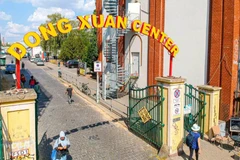
“Dong Xuan” tram stop highlights Vietnamese presence in the heart of Berlin
The move has been widely welcomed, serving as a source of pride not only for the centre’s management and Vietnamese traders operating there, but also for the broader Vietnamese community in the German capital.
